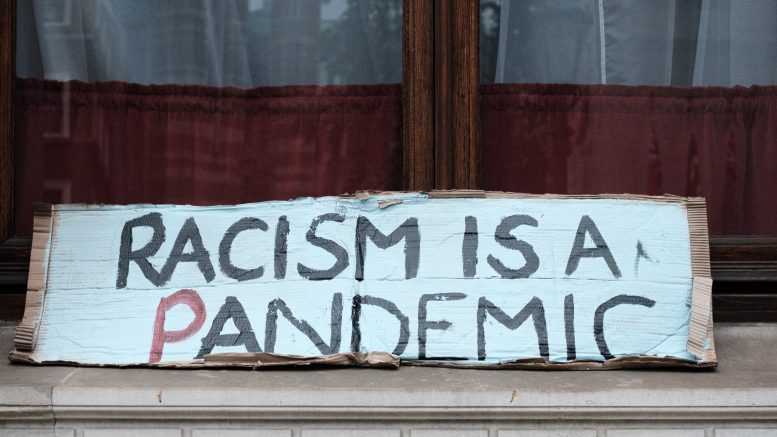Young adults who endure frequent interpersonal discrimination based on race are at greater risk of mental health issues, according to the University of California, Los Angeles (UCLA).
Irrational yet deeply inherited within the society, racism is creeping youngsters.
Rinah Mungombe, a young African girl, went to work with her natural hair, and her colleagues started mocking her. “They began laughing and said I look like a boy and a microphone – they all were white.
“I felt so small and never felt so insecure about my natural hair in my life.” she shared with the VOL.
Omicron: panic with a sprinkle of racism and xenophobia towards Africans
People ages 18 to 28 who experienced consistent discrimination are 25% more likely to experience psychological distress, be diagnosed with a mental illness, or report excessive drug use concluded the UCLA study.
Londoners back up the finding of UCLA. Emmanuelle Ilunga,22, a victim of racial discrimination, told the VOL: “Any discriminatory remarks make you feel insignificant and small.”
Dominique Williams,53, another sufferer, shared with the VOL: “I will never forget the way my high school teacher treated us ‘the black boys.’ We were constantly underestimated, and it left long-lasting scars on us.”
The research found that from 2007 to 2017, young adults who experienced consecutive years of severe, high-frequency discrimination showed a higher risk for mental health problems and worse overall health.
Discrimination leads to stress
A BLM activist told the VOL: ” A family member struggles with mental health due to structural poverty and police harassment. I fight for my people’s rights on a daily basis.
“The new findings of UCLA you are referring to are nothing new to my community. We have been living the story you are reading about.”
An estimated 67 per cent of Black adults have said discrimination is a consequential source of stress, according to a July 2020 survey from the American Psychological Association.
Black people with mental health needs are less likely to get treatment than white people, according to the American Counseling Association. The study also found that Black people sometimes don’t seek care because of “feelings of mistrust and stigma or perceptions of racism.”
Maysa Akbar, the author of Urban Trauma: A Legacy of Racism, shared with NBC News: “Discrimination can commonly show itself through micro aggressions.
Oftentimes it’s linked to feelings of anxiety, depression, suicidal ideation and a host of other health issues. This is something that can exist throughout the lifespan.
You can experience it as a child, as an adolescent and into young adulthood. When we walk around with this unresolved trauma, it just creates more detrimental effects on our well-being.”
words Ivan Zhelev sub-edited: Katie Bird

